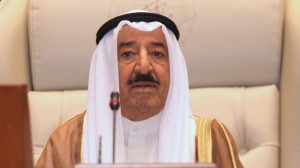 Kuwait has formed a new cabinet following a decree by the country�s emir to reappoint Sheikh Jaber al-Mubarak al-Sabah as prime minister.
Kuwait has formed a new cabinet following a decree by the country�s emir to reappoint Sheikh Jaber al-Mubarak al-Sabah as prime minister.The former Kuwaiti government tendered its resignation to Emir Sabah Al-Ahmad Al-Jaber Al Sabah on July 28 after parliamentary elections.
In the decree, which was issued on Sunday, the emir also confirmed Mustapha al-Shamali as new oil minister. Shamali was in charge of the Oil Ministry since May, when his predecessor, Hani Hussein, resigned under pressure from the parliament.
The Finance Ministry will be headed by Salem Abdelaziz al-Sabah, and Mohamed Khaled al-Hamad al-Sabah will be in charge of the Interior Ministry.
Sheikh Sabah accepted the resignation of the government on Sunday, a day after Kuwaitis went to polls for the second time in eight months to elect the Persian Gulf emirate�s 50-member parliament.
According to official results, Kuwait�s Shia community won eight seats in the parliamentary elections, which were held for the second time in eight months.
The final results showed that liberals also made slight gains by securing three seats in the parliament. Sunni groups won seven seats in the parliament.
Most opposition groups boycotted the elections in protest against an amended electoral law that allows the ruling Al Sabah family to change the voting rule so that each person can vote for only one candidate rather than four, which they did in the past.
The opposition says the new amendment paves the way for the manipulation of the results of the elections and subsequent legislation.
They had also boycotted the last parliamentary vote that had been held in December.
Since May 2006, Kuwait has seen the formation of about a dozen cabinets.
Under Kuwait�s 1962 constitution, the ruling family holds key posts including the premiership and the ministries of defense, interior, and foreign affairs.
The opposition is also demanding that the constitution be modified.
In 2011, protesters stormed the parliament, calling for the resignation of former Prime Minister Nasser Mohammed Al-Ahmed Al Sabah.
By Press TV
The Iran Project is not responsible for the content of quoted articles.










